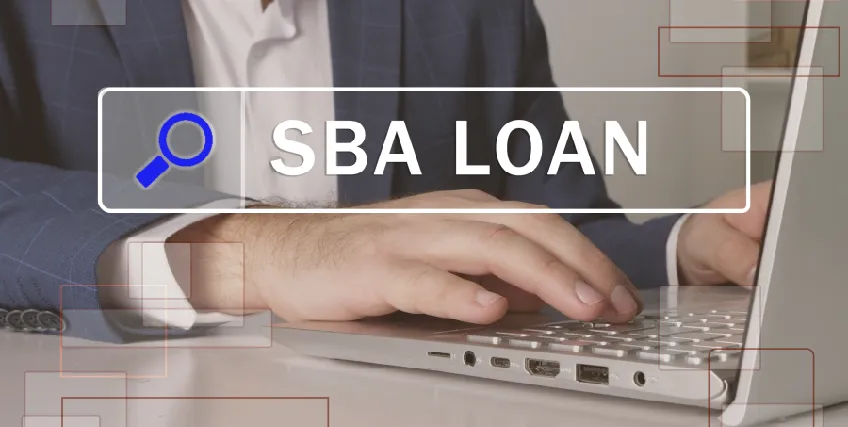
It happens all the time. Businesses reach the point that they need outside funding, but don’t know where to start to find and receive it. There are plenty of reasons new businesses need funding, and their owners must be strategic and figure out where potential lenders fit in.
Reasons for funding could range anywhere from having to purchase equipment, new expenses that pop up over time, and even hiring staff to help grow the business.
While there have been alternate lending approaches, such as borrowing from friends and family, finding the right types of funding opportunities is just one step along the way to business success.
It’s imperative to be competitive in the market for any companies from small to even large businesses to determine the best funding strategy.
Once you’ve identified a need for funding, there are certain things you need to consider to receive funding. Read on for the five important steps to get financing funding today.
1. A determination of what you need
Every business is built differently. Some businesses look for funding when they are already doing well financially as a way of expanding and taking advantage of their success. Other businesses need small business funding to stay afloat. Understanding what your business needs at the time of looking for funding is essential to getting the right funding for your business.
Some things to consider:
- What are you looking for funding for – equipment or operating expenses or business growth?
- What’s your cash flow like?
- Have you raised any previous money from investors?
- Do you have any outstanding loans? If you’re in the midst of repayment elsewhere, it will help guide you toward the right solution.
- Once you’ve answered those questions, you can determine how much money you need and what areas of your business could use funding.
2. A business plan
Any potential lender will want to know that they’re going to get their money back. With that, lenders will expect a business plan that outlines how money will be made. It’s best practice to have a business plan even if you aren’t looking for funding, but when you are, it’s essential. Consider using this resource from the SBA (Small Business Administration) as a guide to creating your business plan.
Your business plan should have everything from market analysis to financial projections and more.
The real meat of your business plan for this purpose, however, is the funding request. In this section, you will outline how much funding you need for the next five years, why you need it, and what you will use it for, such as hiring more staff, opening a secondary location, or other business purposes.
The more detail you can provide to explain why you need the funding and how you’ll utilize the funding, the better.
3. Paperwork
The least fun part of anything is the paperwork involved, and unfortunately, looking for funding is no different. It’s imperative that you have your paperwork sorted out. For example, if you’re applying for a business loan, you will need the business income tax returns. Additionally, you will need bank statements, business registration, an EIN, an income statement, and plenty more.
When setting yourself up for receiving funding, consider writing down everything you need to receive said funding, and organizing it ahead of time. The more prepared you are, the more likely you are to receive the funding you’re looking for.
4. Understanding of eligibility requirements
Eligibility requirements can take up a lot of time and effort for businesses looking to receive financing. Rather than scrambling around to understand what you need to be eligible for the different types of funding options you’re interested in receiving, understanding the requirements of each will go a long way toward making the process efficient.
Like paperwork, having the information at your disposal when it comes to application time will be a big help. Here’s a common list of what most lenders are looking for when evaluating your application:

We have already covered the importance of a business plan and documentation. The remainder of these will help show that your business is, or will be, successful. Remember, lenders are not looking to give money to just anyone. They want to understand that they will get their money back and that your business will be a success.
5. Research potential lenders
Often when we want to receive something, we forget that we are in the driver's seat. You do not have to ask for financing, nor do you have to pick the specific kind of financing you’re asking for. So, when the terms are not what you’re looking for, you do not have to say yes!
As much as lenders are going to investigate you to make sure you’re the right fit to lend to, you must investigate potential lenders and determine if they’re the right fit for you. Something to consider is what type of financing you want, the terms and repayment schedules involved, and how receiving that financing will impact your business.
Remember, you want to set your business up for success, and receiving funding does not automatically do that.
Takeaways
When looking to receive funding, you should consider following the steps outlined above. These will help ensure that you have gone through all the necessary finer points and details to be prepared to get the funding you need and set your business up for success.
There are many different ways to receive funding. Investors or banks can fund you, but there are plenty of alternate lenders, like Biz2Credit who are also eager to help your business grow.
If you’re looking to know what the best type of funding option is right for you and your business and other key topics surrounding business lending, we highly recommend you stay tuned to our blog and sign up for our newsletter. Business lending is a very complex subject, and it’s our goal to help provide you with easy-to-understand tips and guides to help you make decisions that will be best for your business.
FAQs
How does a startup get funding?
There are some common ways through which you can get funding for your business, like crowdfunding, bootstrapping, and, less commonly known, angel investors. Some committed venture capital funds may also invest in pre-seed startups, which is even rarer.
How do you seek funding?
Angel investing and venture capital are the two best-known equity financing methods for startups. Angel investing is usually easier for wishful entrepreneurs to secure — angel investors tend to be wealthy individuals, not investment firms, concentrating on smaller investments.
How do you reach out for funding?
Following are some of the ways through which you can fund your business,
- Investments from Close Network
- Crowdfunding
- Find an Angel Investor
- Venture Capitalists
- Government Schemes
- Bank Loans
- Startup Incubators and Accelerators
- Bootstrapping (Self-Financing)
Can you get funding with just an idea?
After validating, researching, and developing an idea into a solid business plan or pitch deck, it can attract funding from early-stage investors like accelerators, incubators, or angel investors for exceptionally experienced teams.
How do I start a funding request?
When you are creating a request for funding as a stand-alone document, you need to explain the company, your location, what you are selling, the services you offer, and who your customer is. You also need to mention if you are incorporated, and if that is the case, then the type of organization, along with who the owner and key staff members are.




